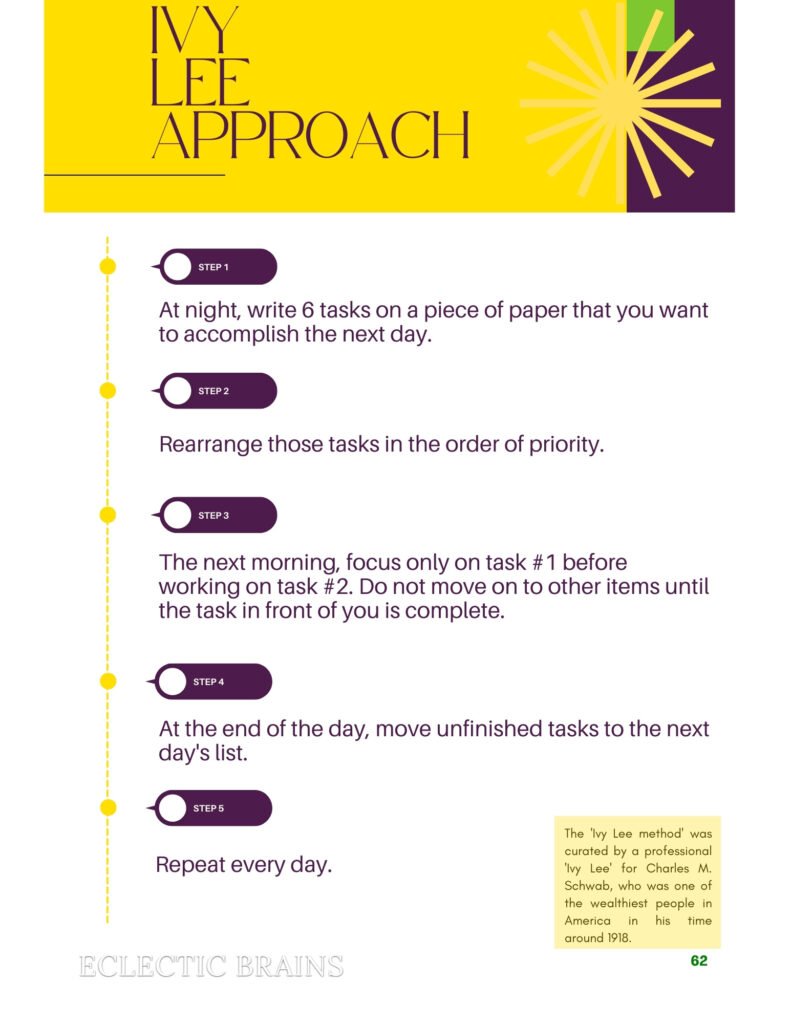
Nirali Parekh
Stanford Graduate
“Procrastination is like a credit card; it’s a lot of fun until you get the bill.”
christopher parker
It’s two hours before the deadline. You’re rigorously working on the task while also silently cursing yourself for why you did not start the task sooner. Sound familiar? If so, you’re not alone! Many of us get caught up in the procrastination trap. In fact, 95% of us delay things to some degree, according to Piers Steel. Be it starting a workout routine, beginning on that report due next week, or starting a new blog, we have all procrastinated more times than we’d like to admit.
No, you are not. Despite what most people may claim, procrastinating is not about being lazy. In reality, when we procrastinate, we frequently work exceedingly hard for long periods right before the deadline. Working long and hard is the opposite of laziness, so it cannot be a reason why we procrastinate.
Procrastination is a complex behavior that has been studied for decades. There are many different types of procrastinators, and they all have different motivations.
Types of Procrastinators
There are five main types of procrastinators: The “can’t-get-started” type, the “I’ll-do-it-later” type, the “I’m-not-so-sure” type, the “I’ll-wait and see” type, and the “I’m afraid to fail” type.
Causes of Procrastination
Whatever type of procrastinator you are, the first step toward overcoming procrastination is understanding why you are putting off what needs to be done and then devising solutions to that problem.There are three main causes of procrastination :
- Abstract goals : We often feel anxious and scared by abstract, seemingly impossible goals. Human nature is not comfortable with the unknown, and not recognizing the precise steps and tasks can make us put them off till they are more clear. (Fear of failure, fear of success, fear of criticism.)
- Outcomes that are far in the future: We prefer to deal with the repercussions later since we don’t perceive the advantages of taking small steps now. (Fear of change or simply lack of self-discipline. )
- Perfectionism: I am guilty of this. I’m unable to begin anything new until I have perfected the previous thing. It needs recognition that things will never be perfect 100% of the time.
Now that you are aware of the cause of your procrastination, it’s time to put an end to the feeling that you ought to be getting some work done but are unable to. As with most habits, it is possible to overcome procrastination.
After reading The Power of Now by Eckhart Tolle, Getting Things Done by David Allen, and a few other self-help and productivity books, I concluded that they all merely offer the same reasons and hacks for getting work done—just against varied backdrops.
Here are a few tips to get you started:
- Stop planning (at some point) and start doing. Many of us fall into the never-ending cycle of making plans, then perfecting the plan, and then planning some more. You must eventually stop deciding on a course of action and start acting. Getting started is more important than succeeding.
- Setting short-term goals to reach your long-term goal : Set many smaller goals instead of large goals. Small, detailed jobs seem more manageable and less daunting to do.
- Creating a Task List: Use a task list or a to-do list. I will explore this point in more detail when I discuss an efficient technique called the Ivy Lee method.
- Stop multitasking and commit yourself to a single task. When multitasking becomes habitual, it reduces productivity and increases stress.
Get rid of your procrastination.
Being consistent: routine for peak productivity
It is incredibly easy to revert to old routines and procrastinate until the ultimate panic sets in. There are numerous techniques available online that promise you won’t take a U-turn after that. But, I’ll share here one tried-and-tested method that, in my experience, works exceptionally well.
It is known as the Ivy Lee approach. The process begins with just a scrap of paper and is shockingly straightforward.
- At night, write 6 tasks on a piece of paper that you want to accomplish the next day.
- Rearrange those tasks in the order of priority.
- The next morning, focus only on task #1 before working on task #2. Do not move on to other items until the task in front of you is complete.
- At the end of the day, move unfinished tasks to the next day’s list.
- Repeat every day.

This way, you know what you need to do every day and can break down tasks into smaller chunks so they’re less daunting. If a task is too big, it’s easier to get started on that task if you break it up into smaller pieces.
Friendly Reminders :
- Be patient with yourself.
- Make it reasonable.
- *Habits* : Your brain can be your best friend or your worst enemy. Take care of it with good habits.
- One thing at a time.
- Always re-evaluate what things worked for you and what things didn’t.
- Set a timer for 45 minutes / 60 minutes per task. Clock out your time for each task. This gives you time to do other tasks as well. For a well balanced time schedule, aim for 8 hours of work, 8 hours of private life, and 8 hours of sleep.
- The next time you put anything off, identify the type of procrastination you’re dealing with and track down its true cause.
Guest Writer : Nirali Parekh | Stanford Graduate
Nirali is a graduate student at Stanford University and an aspiring professional in computer science and entrepreneurship.











